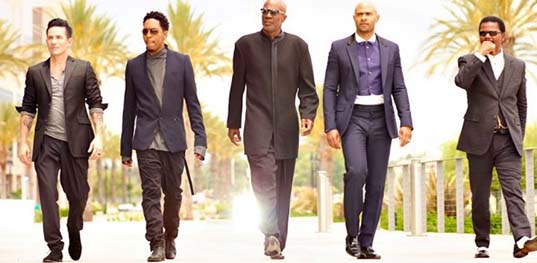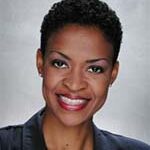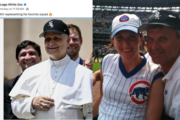“Preachers of LA,” is a new reality show on Oxygen, chronicling the outsized lives of celebrity pastors living a life of prosperity. Over 1.2 million viewers watched the show’s premiere, but what does the show suggest about the commercialization of black supermegachurches—and the New Black Church? I have spent the last decade studying the theology and economic perspectives of these preachers and their supermegachurches. My dissertation, The Wal-Martization of African American Religion: T.D. Jakes and Woman Thou Art Loosed (download the PDF) explores the relationship between African American churchwomen and their pastors in post-civil rights America. In the New Black Church, the relationship between pastor and parishioner extends far beyond brick and mortar edifices and includes global networks, mass media, and a host of products from books to weight loss plans. Pastor-entrepreneurs view themselves as both pastors and CEOs.
The catalyst for my interest in the New Black Church and “prosperity theology,” began after I had launched Paula McGee Ministries, a nonprofit corporation that offered conferences and Bible studies along with products such as shirts and bookmarks. I had also written several articles and published sermons that became the beginning of two faith brands: Accepting Your Greatness and Divine Divas. At the time, I saw no problem with branding and marketing as a significant component of the ministry.
After finishing a master’s degree at Vanderbilt, I accepted a position as the dean of chapel at Fisk University. At Fisk, we invited Dr. Frederick K. C. Price, “The Godfather of Faith,” to deliver a series of lectures. There, I met his wife and daughters and soon received numerous invitations to preach and teach at Crenshaw Christian Center’s national women’s conferences. I recall my first workshop in the Faith Dome with about 350 women. These women, along with a gift from the pastor’s wife, provided me with an honorarium that was equal to half of the annual salary I received at Fisk University. I quickly became an insider in this supermegachurch prosperity gospel phenomenon where I met preachers that lived in 26,000 square foot homes, owned private planes, and drove Bentleys. What I learned through these experiences astonished me. I could not imagine that anyone could believe with the faith claims of the prosperity gospel. How could anyone believe that praying and confessing scripture could cure cancer or make one rich? However, the women that I encountered believed these propositions of wealth and health, sometimes, even to their own detriment.
As I received an increasing number of invitations to preach, I began to struggle with the combination of ministry and business and I began to examine my own ethics and definitions of the sacred and secular. Where was I supposed to draw the line between commerce and ministry, or was there even a line to be drawn? Was the “bottom line” the determining factor in deciding which invitation to accept? Discerning which church invitations to accept became challenging, especially because the Word of Faith churches often paid honoraria that were ten to twenty times the amount of those offered by traditional Black churches. Eventually, I decided to become a scholar and study this movement, one who offers a critique of the rampant consumerism in our churches.
It is interesting to note that in the year of the 125th anniversary of the Emancipation Proclamation and the 50th anniversary of the March on Washington, five out of six of the cast members of “Preachers of LA” are African American. Like other preachers in the New Black Church, these pastors combine the social justice history of traditional black churches with the tropes of empire. The liberation these preachers promote consists of making money and advancing within the system. Their brands fit comfortably into a glamorous American story of rags to riches: Horatio Alger, the self-made man or woman, and the myth of meritocracy. These stories resurface in new ways with each generation, especially during times of great economic disparity.
Belief in this myth encourages us to believe that our economy has created a fair marketplace in which each of us can strive to one day live like the rich and famous. All we have to do is pull ourselves up by our bootstraps. Unfortunately, the myth also cast blame on those who are poor or who have otherwise failed to achieve their financial goals. The mythology also encourages us to believe that the historic battles against injustice and oppression have already been won. Affirmative action and the programs designed to protect the poor and help the oppressed are no longer necessary. We are encouraged to believe that fame and riches are accessible to all, and “Preachers of LA,” adds to this by inferring that we now have a few successful black preachers to prove it.
Paula McGee is a guest contributor with the USC Center for Religion and Civic Culture.








